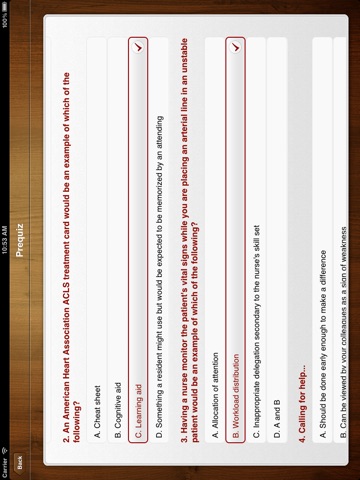
Crisis Code app for iPhone and iPad
Developer: Stanford Anesthesia Informatics And Media Lab
First release : 27 Mar 2012
App size: 4.72 Mb
Crisis Code is designed to teach Crisis Management for Advanced Cardiac Life Support. It was developed by Larry Chu, MD, Kyle Harrison, MD and the Stanford AIM Lab.
Healthcare professionals are required to handle medical emergencies and crises. Yet, many these healthcare providers are not always knowledgeable about teamwork and evidence-based techniques for managing a medical crisis. This iPad-based course will teach physicians crisis resource management principles and the application in providing ACLS during cardiac arrest.
The instructional format for this course will include learning trigger videos and video podcast lectures.
Learning Objectives
Objective 1: Develop strategies to implement Crisis Resource Management principles and their application during cardiac arrest treatment.
Objective 2: Develop strategies to utilize updated guidelines for management of cardiac arrest.
Objective 3: Develop strategies to build skills for: 1) airway management and vascular access, 2) management of PEA (Pulseless Electrical Activity)/Asystole, ventricular tachycardia/fibrillation, symptomatic bradycardia, unstable supraventricular tachycardia, and 3) post-resuscitation management
Table of Contents
1. Introduction to Crisis Resource Management (47 Minutes)
2. The Science of ACLS (50 Minutes)
3. Pulseless Electrical Activity (PEA)/Asytole (80 Minutes)
4. Ventricular Tachycardia/Ventricular Fibrillation (73 Minutes)
5. Symptomatic Bradycardia (42 Minutes)
6. Unstable Supraventricular Tachycardia (78 Minutes)
7. Airway management and Vascular access (30 Minutes)
8. Post Resuscitation Management (28 Minutes)
Intended Audience
Designed for physicians in all specialties who work in the hospital and teaching settings.



